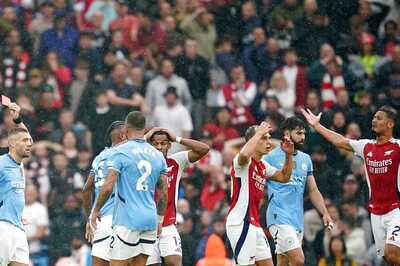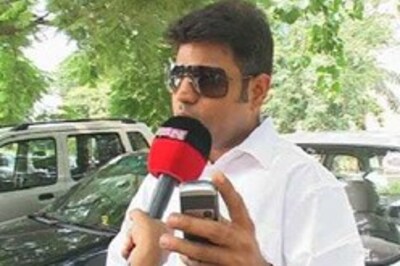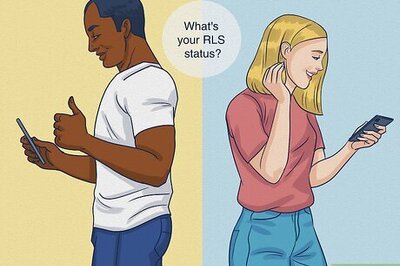
views
Its competitor, Eureka Forbes, hit back with an ad showing a blurry water purifier, presumably HUL's Pureit, and a man in a yellow raincoat offering water to a woman. The woman spits out the water on his raincoat saying it tastes like chlorine.
The two are now in court fighting as much over the use of the yellow raincoat as about the quality of water from their purifiers. Hindustan Unilever says the Eureka Forbes ad mocks Pureit, and Eureka Forbes says the assertions in the ad are true. The two have now sent water samples from both purifiers to an American laboratory to test if the claims are true.
There is a lot at stake for both companies. Eureka Forbes was the undisputed leader in this segment until HUL stormed its bastion. Eureka sold expensive water purifiers (Rs 7,000 or more for each and above) that were out of the reach of most Indian homes. HUL exploited this gap with the low-cost Pureit (Rs 2,000). But, there is also another reason why HUL is bent on winning this war. Reports suggest HUL's Anglo Dutch parent is waiting for HUL to perfect Pureit's business model to take it other developing markets. Even though the company says it is currently focussed on the Indian market.
Just around 8 per cent of Indians use water purifiers, according to industry estimates. Others boil, use candle filters or do nothing. "It is this segment that products like these cater to," says Editor of trade magazine Everything About Water and consultant to water companies, H Subramaniam. "It is not currently a very large or profitable market but it is the fastest growing market and potentially the largest."
The spat between HUL and Eureka Forbes has been brewing since HUL, India's largest consumer products company, introduced Pureit in 2004. Eureka Forbes, known for first bringing water purifiers to Indian homes, hit back with a similarly priced, no-power and no-running-water device called AquaSure. Now, HUL sells more water purifiers but Eureka Forbes makes more money.
Hindustan Unilever says it broadened the market for water purifiers by creating Pureit. General Manager for HUL's water business, Vikram Surendran, says the criteria HUL talks about in the ad were set pretty early on in the product development phase. "We set ourselves a pretty tough task. But that in a sense helped us create a product that has helped create a market."
While it has meant that HUL has already sold three million units of Pureit, it has not been easy for a company built on selling small consumable products, including soap and toothpaste, to sell the somewhat bulkier water purifiers. The company uses its existing franchisees but asks them to set up extra space for its dedicated sales teams and to keep products - known as Safe Water Zones.
HUL perfected this formula in South India before going national last year. And yet, the quick ramp-up meant after-sales service found it hard to keep up. Surendran says that has now been solved with dedicated call centres, separate after-sales teams etc. But as HUL looks to enter rural markets, ensuring good after-sales service will be hard.
HUL tried several pilot projects to reach out to villages. It worked with Micro Finance Institutions (MFIs) to sell and extend credit through them. But a study by social consulting company, Monitor, found that MFI agents, used to selling loans, found it hard to transport and sell water purifiers. They also bore the brunt of lapses in after-sales servicing. HUL may now use MFIs only to extend credit and use its own sales team for the rest.
Eureka Forbes perfected the model of salesmen visiting homes and explaining the benefits of moving to Aquaguard in the Eighties. But this also restricted it to a metro-centric product. "None of us has reached the bottom of the pyramid yet," says CEO of direct sales at Eureka Forbes, Marzin Shroff. The company is trying several things to get there. It recently launched a service that allows families to rent an Aquaguard for Rs 450 a month. It also set up water filtration plants in 100 villages where families can buy clean water for 10-15 paise a litre. Shroff says it now plans to scale this up across the country.
Having initially been pipped to the low-cost water purifier, Shroff says Eureka Forbes has new technologies in the works. Of course, he can't talk about them. "We were a small company then," he says, talking about 2004 when Pureit was created. "But we always had dreams. This issue was not on anyone's radar till around three years ago."
What is on everyone's radar right now is the court case and the accusations. For instance, Eureka Forbes says Pureit uses chlorine to clean water when it should be used only to clean swimming pools or in emergencies. But Surendran, says chlorine is one of the most popularly used cleaning agents for municipalities. Adapting this for home use is "I think a credit to our technology more than anything else."
Eureka Forbes has said in court that Pureit uses a chemical called TCCA to release chlorine in to the water. But TCCA also releases cyanuric acid, in this process, which could be harmful for consumption if it mingles with melamine, commonly used to make tea cups or plates. HUL has said that no acid gets released in to the water because a carbon block leaches it out after the water is treated by chlorine.
Shroff asks for a block of carbon in his office conference room and tosses it up in the air. The block breaks into two on landing and Shroff suggests this is probably how effective it is when it reaches consumers after long journeys across India. Either way, experts say chlorine is the most widely used microbial purification chemical in the world.
Shroff also says that while Eureka Forbes has other devices to treat water for arsenic, fluoride and other such substances, Pureit does not. Surendran says HUL may develop such products later.
"It is also generally rare to find a single "magic bullet" that would remove all types of contaminants, and do so cheaply," says Director of the United Nations University's International Network on Water, Environment and Health, Dr Zafar Adeel.
Both companies are waiting for the US lab to come back with results. But Subramaniam says, "It would be hard for a court of law to judge in the absence of any standards. The problem is that in India there are no standards for water purifiers except those set by the Bureau of Indian Standards for UV purifiers."
The court case is just one of many hurdles the companies want to get over to crack India's mass market. Shroff says his company has several potentially winning technologies under development. Surendran says he has just extended his Rs 1 crore challenge for Pureit, which he says is still unclaimed.




















Comments
0 comment